Five Ways You Stopped Poverty in Its Tracks
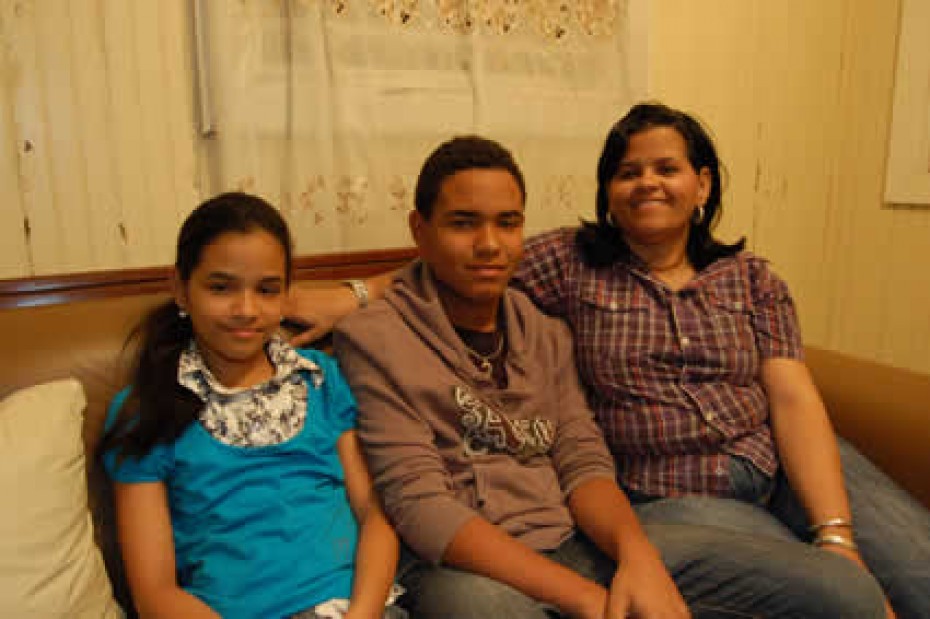
Five Compassion program graduates share a common story – they overcame the slavery of poverty and are now able to provide for themselves and others.
Continue Reading ›Where Are They Now?
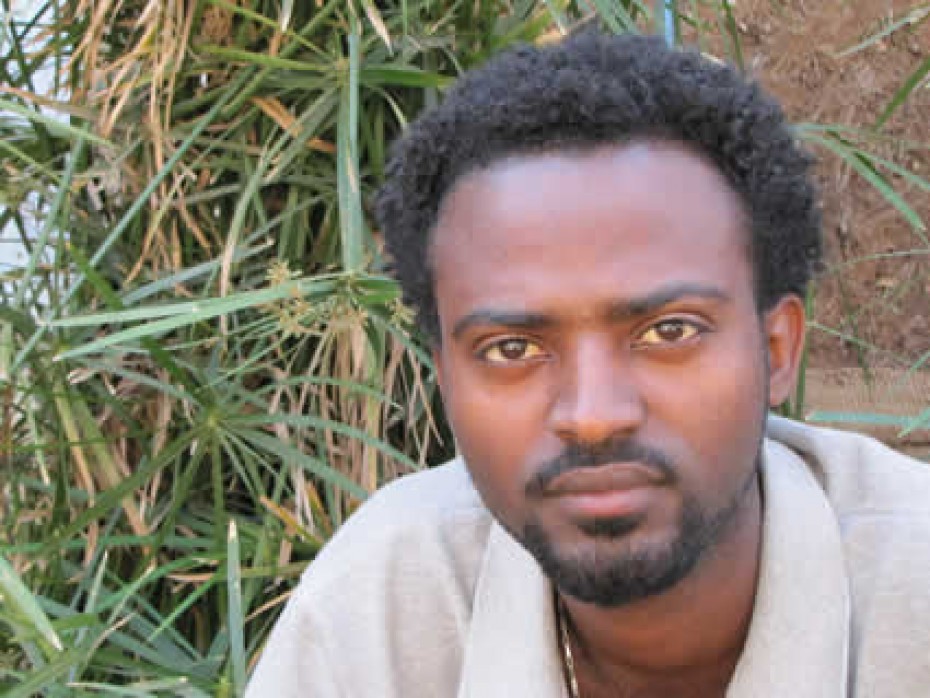
Though the degree of poverty varied and each family’s story was different, these people had one thing in common that day — they had hope. Hope that God heard their plea for help; hope that this would be the beginning of a brighter future for their children; and hope that the children they held in their arms would be sponsored.
Continue Reading ›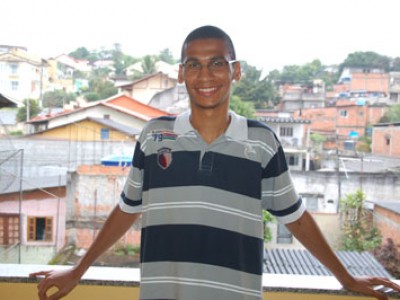
A Past Full of Poverty, a Future Full of Hope
Just as artists on the stage have people working behind the scenes to make them shine, Felipe has a grateful heart toward one person who helped him shine: his sponsor, Barry. “If it wasn’t for him, his love, his letters, and his sponsorship maintaining me in the center, I’m sure that I would not be who I am today,” Felipe says, repeating his gratitude often.
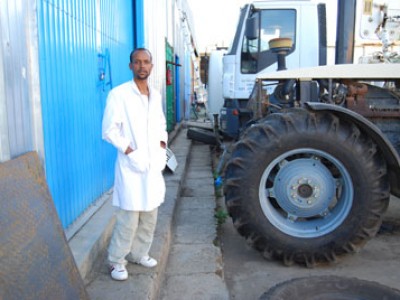
Inspired to Lead
“The counsel I got from Zewde, who is like a mother to me, is what helped me be who I am today. She helped me see that if I work hard today I would be a great person tomorrow and achieve my dreams. She used every opportunity to keep me away from my friends who were bad influences on me and give me advice on life. She instilled in me the desire to pursue my education and told me to never lose sight of my purpose,” says Sheleme.
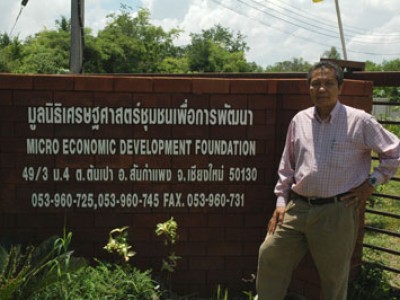
A Microlending Leader Emerges: Yamsuk’s Life After Sponsorship
“I am very proud to work alongside the villagers. I sacrifice myself, my knowledge and my time into the savings groups. All my work wasn’t wasted. But it is growing and it can help poor villagers.” — Yamsuk
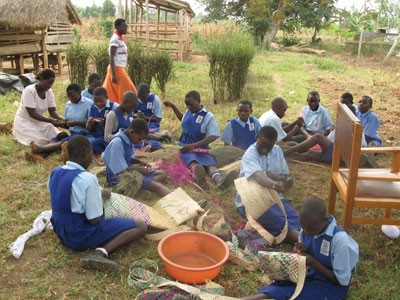
What Do Sponsored Children Do When College Is Not an Option?
With the support of our staff, Fausta pushed on and tried her best to excel. However, when her Primary Leaving Examinations results came back, she had failed. It was then that Fausta made a decision to discontinue formal education despite Compassion’s willingness to pay her school fees. She decided instead to train in tailoring.
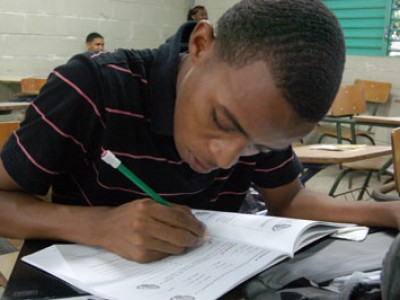
What Do Children Do After They Graduate From Our Sponsorship Program?
One of the goals for our Child Sponsorship Program is for every child to successfully graduate with faith in Christ and the necessary life skills to become self-sufficient. Onidis’ story reflects the importance of the Child Sponsorship Program, even for the youth who don’t move on to our Leadership Development Program.
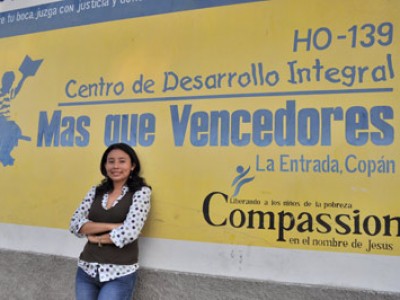
“Look After Your Sisters, and Do Something Good With Your Life.”
Just before passing away Vilma’s mother asked Vilma for two things, to look after her sisters and to do something good with her life. So when the news came to Vilma, a graduate of our sponsorship program, that the Compassion Honduras country office was looking for a Partnership Facilitator for the western region, she was immediately interested and started to pray.
Vallarasu the Outlier
NOTE FROM EDITOR: This content honors Compassion’s historical work in India. While we no longer have an India sponsorship program, we are grateful for the lives changed and meaningful work achieved through our sponsors and donors in our nearly 50 years there. For a detailed explanation of the end of our sponsorship program in India, please visit: compassion.com/india-update.
Outliers are men and women who do things out of the ordinary; men and women who have drive, skill and talent, but who also are given an opportunity to succeed.
“When outliers become outliers it is not just because of their own efforts. It’s because of the contributions of lots of different people and lots of different circumstances.” – Malcolm Gladwell
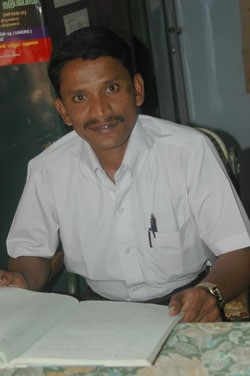 Vallarasu is an outlier.
Vallarasu is an outlier.
Vallarasu hails from Srivalliputhur. He is now 30 years old. Though his physique suggests that he is very soft guy, his words are weighty and powerful. There is a passionate boldness in his face.
Vallarasu’s dad was a shopkeeper and sold household goods. When Vallarasu was 6 years old, his father was murdered by a gang. Thereafter, the family suffered greatly. They had no money to afford even one square meal a day.
One year after the murder, Vallarasu’s mother committed suicide, and Vallarasu and his two sisters were left orphans. His two sisters were brought up by an uncle, but Vallarasu was left behind in the streets.
Compassion found him in the streets, and he was taken into St. Andrews Child Development Center. The center supported him so he could study in the school. The school had a hostel facility, so the center provided him with not only education, but also gave him shelter, food and comfort.
The problems that Vallarasu experienced as a little child instilled a deep burden within his heart. He developed a burning desire to help orphans and desolate children. He took the initiative in solving every little conflict that arose among the children at St. Andrews, and even teachers marveled at his efficiency.
Some teachers commented, “In the future, you will become a big leader in the society.” While others said, “I am sure you will stand as an advocate speaking for thousands in days to come.”
Fighting the Restavèk Curse in Haiti
Restavèk is a Creole word for a Haitian child who stays with and works for another family. A restavèk child can be a boy or a girl who is given away by a poor family in order to survive. Frequently, the restavèk’s most basic rights to health and education are denied.
Of these children, 65 percent are girls between age 6 and 14. They are forced to work long hours under harsh conditions and are subject to mistreatment, including sexual abuse.
The restavèk child is the first person to wake up in the morning and the last one to go to bed, sometimes after 14 hours of work that consists of, among other chores, carrying water, washing clothes, taking the owner’s children to school, doing errands, and cleaning the home.
The restavèk child is often beaten for the simplest mistakes. Laws against child abuse exist in Haiti, but unfortunately, they are seldom enforced as children’s rights don’t have a high a priority.
The number of restavèk children reported nationally is between 250,000 and 300,000, and this domestic phenomenon is due to several reasons. (more…)
Philippines Milestone: 50,000 Registered Children
“Why just now?” asks Pastor Joel. “Where was Compassion when I was just a child who had all the potential but did not have the money to go to school or to eat three square meals a day?”
Pastor Joel grew up on the remote island of Siquijor in the Philippines, which has long been known for magic and witchcraft, but Compassion in the Philippines only began partnering with churches in Siquijor this year.
Although Compassion reached the Philippines in the 1970s, we finally landed in the isolated island after 30 years!
In 2004, we began regularly updating our strategy map to identify the poorest and neediest provinces in the country with the fewest number of evangelical churches, and the list included Siquijor. (more…)
Leadership Development Program: Getting It Started in El Salvador
“One day, we will see a former participant in Compassion’s sponsorship program lead our nation.” This is the dream that fills the hearts of the Compassion El Salvador staff.
What started in 1977 in El Salvador with the implementation of the child sponsorship program, is now taking a step closer toward that dream.
A few months ago, after a long wait, the Leadership Development Program* (LDP) started to take shape in El Salvador.
At Compassion El Salvador, we always have known there is potential in our future men and women to lead this nation. With the Leadership Development Program in our country, we can work hard to further develop those future leaders. (more…)


